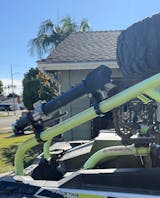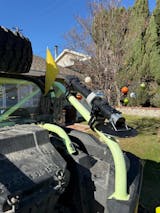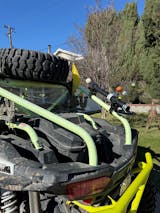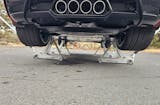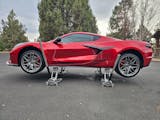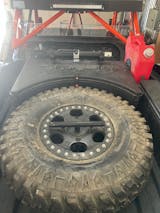Shocks, or as the British rightfully call them dampers. Are what control the springs on your car, truck or SUV. In 1952 a Frenchman designed the modern monotube hydraulic shock. You can see the design below.

The damper was great for grandma Mercedes (first brand to use this new technology), but found many limitations when raced off-road. Especially as engines and chassis improved.
So what did racers do.. Added more, because if a little is good, then more is better. Bolting on more and larger designs, with some success. By the late 70’s shocks of the day were so overworked that changing them during a race at a pit was a maintenance item and planned for. Crazy to think about, but normal back then.

But as with all issues a solution was just around the corner. Fox, Kuster, Shock Tech, Sway a way and King all joined the party in the 1980’s. Bringing us remote reservoirs, bypass shock, remote coolers and a bunch of really unique designs.

By the 1990’s the coil-over shock and by-pass shock combo we are used to seeing today became the norm.

And although shocks continued to get better each year, there were no massive leaps in tech. That is until Live Valve was created.

Till recently shocks were always a compromise between comfort and performance. With Fox’s new live valve technology you have semi-active control of compression and rebound damping. And this thing is fast, it can adjust a by-pass tube from fully closed to fully open in 36 milliseconds. That's like 3 times faster than we can blink. And as anyone who has tuned shocks knows, even opening or closing a by-pass tube by a few turns can completely change the feel of the car. Not only that but the ECU is sampling data from the entire vehicle at 500 times per second and adjusting according to tuning parameters and algorithms…plural. And there is infinite potential for more algorithms and parameters. Which means sky's the limit on how they can potentially respond and perform. This stuff is so high tech that Ford and Polaris signed on to use a version of it on their Raptor and RZR respectively.

But what's even cooler is the lesson learned and discoveries made feed directly into the replacement shocks that you and I can buy for our personal vehicles, today. Providing you with more comfort and responsiveness that grandma's Mercedes ever had.












